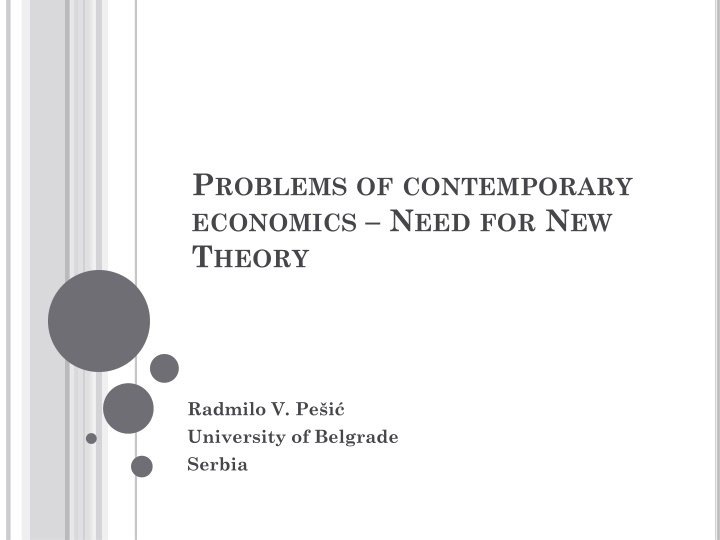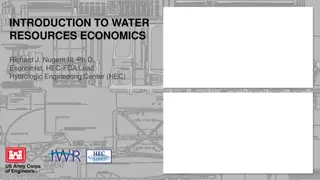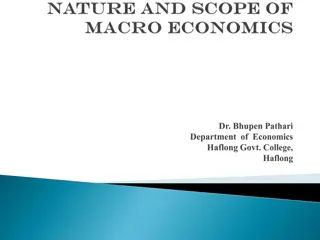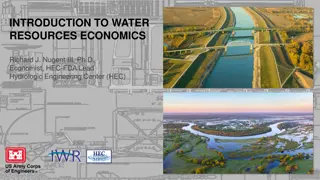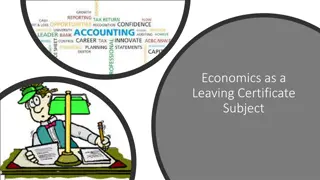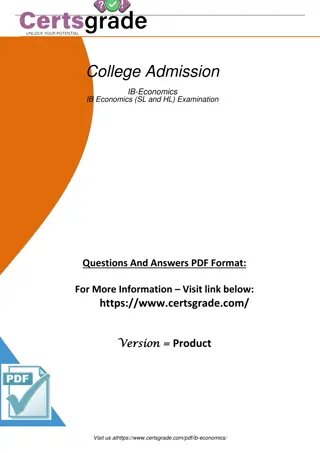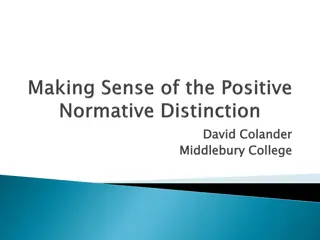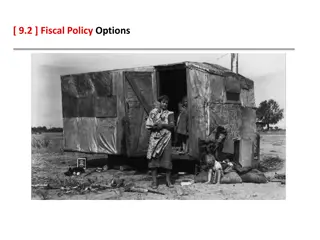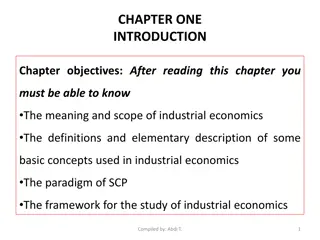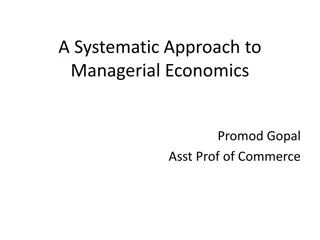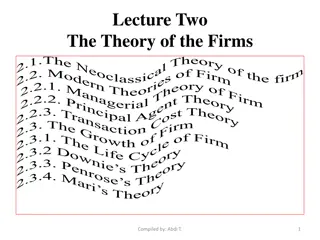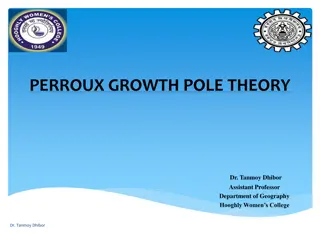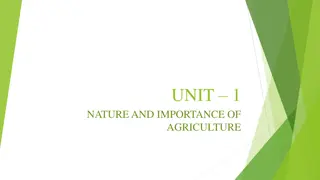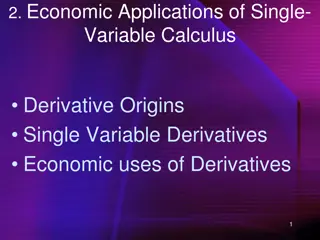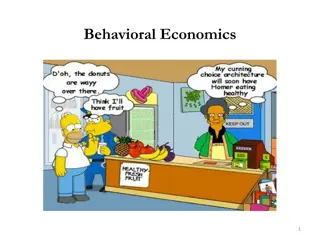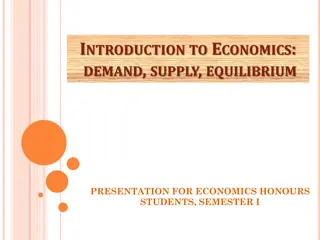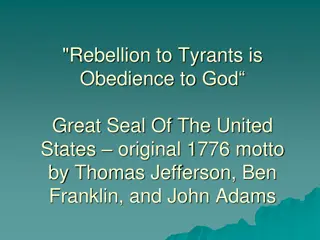Challenges and the Need for New Economic Theory in Contemporary Economics
The discussion highlights the shortcomings of mainstream economics and the necessity for a new economic theory that aligns with real-world scenarios. It emphasizes the importance of economics knowledge in promoting survival, growth, and sustainable prosperity, while also addressing issues such as perfect rationality, information problems, bounded rationality, and the illusion of all-knowing markets. The need for a shift towards more practical and effective economic policies is underscored amidst the existing discrepancies and limitations in current economic practices.
Download Presentation

Please find below an Image/Link to download the presentation.
The content on the website is provided AS IS for your information and personal use only. It may not be sold, licensed, or shared on other websites without obtaining consent from the author.If you encounter any issues during the download, it is possible that the publisher has removed the file from their server.
You are allowed to download the files provided on this website for personal or commercial use, subject to the condition that they are used lawfully. All files are the property of their respective owners.
The content on the website is provided AS IS for your information and personal use only. It may not be sold, licensed, or shared on other websites without obtaining consent from the author.
E N D
Presentation Transcript
PROBLEMS OF CONTEMPORARY ECONOMICS NEED FOR NEW THEORY Radmilo V. Pe i University of Belgrade Serbia
DO WE NEED ECONOMICS AT ALL? To make students` life harder, to make economists more esoteric, to make economic profession more exclusive and better paid, to make politicians more addicted to economists, and to make journalists more ignorant .??? Contemporary mainstream economics is just made for such purposes. NO! WE DO NOT NEED SUCH ECONOMICS.
WHAT DO WE NEED, AND WHY? We need economics knowledge in order to: to enable mankind to survive, grow and prosper to protect humanity from its own greed to make the World a better place to save the Planet for generations to come Current ET is just a small fraction of a rich legacy that some clever scholars left us, and it serves as a scientific justification of current distribution. New Economic Theory is the right answer
WHY DO WE NEED NET? Discrepancy between theory and reality (university economics vs. real life economics, Dept of Econs. vs. MBA) Diminishing explanatory power of economics In spite of high-tech methods and techniques less science in it (more and more abstract suppositions, assumptions). Unsuccessful attempt to resemble theoretical physics Impotence of economic policy
WHAT ARE THE PROBLEMS? Perfect rationality axiom. Information problem, (information gathering is costly, time consuming and misleading / information redundancy, selection and analysis problem) Bounded rationality (Simon H.) Behavioral economics, prospect theory (Kahneman, Twersky, Knetch, .etc)
MORE PROBLEMS Optimization. Do we optimize at all, or we just search for a satisfactory solutions? Do we now what is optimal? Consumer choice. How rational it really is? Advertising. Information bias. Transaction costs (transparent and hidden). Profit maximization. Do entrepreneurs really maximize profits or just search for a satisfactory profit? Big firms, monopolist, may maximize. Small and medium sized only may try, through attempts and falls, but it is very costly and nearly impossible. Most of economic agents in reality search for: Satisfactory profits, Satisfactory incomes, Satisfactory utility (Shiozava, Y. Nelson, R. Foster, J. and other Evolutionary economists)
MORE PROBLEMS Illusion of OMNISCIENT and OMNIPPOTENT markets (Bj rkman, T. ; Jacobs, G. ; Komlos, J. etc.) Confusion: free trade=free market ; Smith vs. Walras : Hayek vs. Keynes (Bj rkman, T.) Illusion of Equilibrium (free market powers tend to equilibrium) Free market=perfect competition=freedom of choice=political freedom=democracy
MORE PROBLEMS Abstraction is reduction of reality We still believe that the abstraction is the reality Simplifying world Model building is a dangerous trivialization We have substituted philosophy with mathematics, and logics with statistics
WHAT ARE THE SOLUTIONS? Humanistic Real-world Economics Humanistic Economics in normative sense Real-world Economics in positive sense New Market or Post-Market Economy without myths of the market (markets are man- made institutions) Finding ways to avoid Another Road to Serfdom Avoiding dangerous dominance of corporative sector (instead of countervailing between states and corporations).
POST-MARKET SOCIETY Information revolution, Digital goods, free public goods Networking (Mason, P) Strength of networks> minimum bureaucracy, flexibility, quick change, changing leadership, informal character, voluntarism, freedom of choice Political fear: leaving market economies and substituting market societies with networks freedom will be lost. New concept of freedom Another road to Serfdom (Komlos, J).
REFERENCE Bj rkman, T. 2016 The Market Myth. Cadmus, 2(6), May , 43-59. Foster, J. 2011 Evolutionary macroeconomics: a research agenda. Journal of Evol. Econs. 21 5-28. Hoffman, R. 2012 On the Need for New Economic Foundations: A Critique on Mainstream Macroeconomics. Cadmus, 1(5), October, 74-85. Jacobs, G. 2016 Foundations of Economic Theory: Markets, Money, Social Power and Human Welfare. Cadmus 2(6), May , 20-42. Komlos, J. 2014 What Every Economics Student Needs to Know and doesn't get in the usual Principles Text. M.E. Shape, Armonk NY. Komlos, J. 2016 Another Road to Serfdom. Chalenge, 59(6) , 491-518. Nelson, R. R. 2013 Demand, supply, and their interaction on markets, as seen from the perspective of evolutionary economic theory. Journal of Evol. Econs. 23 17-38. Shiozawa, Y. 2004 Evolutionary Economics in the 21stCentury: A Manifesto. Evol. Inst. Econ. Rev. 1(1) 5-47. Simon, H. 1991 Bounded Rationality and Organizational Organization Science. 2(1) 125 134.
